Previous Schools » Faculty - Barcelona, September, 2013
Faculty members and guests lecturers are international experts in research impact assessment
| Confirmed Faculty | |
| Jonathan Grant, Rand Europe [+]
Recently Jonathan led a project reviewing the Excellence in Innovation for Australia (EIA) Trial on behalf of the Australian Technology Network of Universities. Modelled, in part, from the impact element of the UK Research Excellence Framework (REF), the EIA Trial aimed to assess the non-academic impact of research generated by a subset of Australian universities and be a pilot for a potential companion piece to the next Excellence in Research for Australia (ERA), a nationwide performance assessment of Australian universities. Jonathan Grant was President of RAND Europe between June 2006 and October 2012. Under his leadership Jonathan oversaw the doubling of RAND Europe’s activity in Europe, the founding of a vibrant and successful office in Brussels, and the establishment of the Cambridge Centre for Health Services Research, a joint venture with the University of Cambridge. Jonathan joined RAND in 2002. He was formerly Head of Policy at The Wellcome Trust. Jonathan received his Ph.D from the Faculty of Medicine, University of London and his B.Sc. (Econ) from the London School of Economics.
|
|
| Paula Adam, Agency for Health Quality and Assessment of Catalonia (AQuAS) [+]
Paula is currently working on the assessment of the impact of the Catalan greatest charity, circa 100 Million Euros in the course of 20 editions. She is also involved in the research characterisation and assessment of the scientific activities performed in the top-quality Health Research Institutes of Spain according to an accredited ranking. She has conducted several studies tracing the outcomes of the research funded by AQuAS (accountability in relation to public investment) that have allowed her to use different methodological approaches ranging from the development and application of questionnaires till qualitative methodologies. She also has expertise in the assessment of healthcare delivery, healthcare priority setting and waiting lists. In the past, Paula has worked at the OECD and The World Bank doing policy analysis and assessment. Paula was born in 1966 in Spain and holds a PhD in Economics from the European University Institute in Florence (Italy).
|
|
| Kathryn Graham, Alberta Innovates - Health Solutions (AIHS) [+]
In health care, she participated in the implementation of a number of continuum of care models such as soft-tissue injuries, brain injury and chronic pain. The strategic components included a number of innovative practices such as disability management tools, medical advisory guidelines, case management protocols, as well as a process for setting standards and developing a reporting system for evaluating thousands of different health care providers across a preferred provider network in Alberta. She has an advocate role on the Canadian Evaluation Society Board (Alberta Chapter) and is a regular contributor to both the Canadian and American annual evaluation conferences. She is also a member on a number of organizations that focus on impact including the National Alliance of Provincial Health Research Organizations (NAPHRO), the Consortia Advancing Standards in Research Administration Information (CASRAI) and the Science of Science Network on Mental Health headed by the Graham Boeckh Foundation and facilitated by RAND Europe. She is a social scientist and her research interests are in systems level monitoring and evaluation, impact assessment, “Science of Science”, mental health and clinical outcomes. She has a Ph.D. in Applied Psychology from the University of Cranfield, England with a specialization in Industrial Psychology and measurement.
|
|
| Alexandra Pollitt, Rand Europe [+]
|
|
| Maite Solans-Domènech, Agency for Health Quality and Assessment of Catalonia (AQuAS) [+]
She has conducted several studies tracing the outcomes of the research funded by AQuAS (accountability in relation to public investment) that have allowed her to use different methodological approaches ranging from the development and application of questionnaires till qualitative methodologies. She also has worked with different projects related to the elaboration of evidence base reports such as health technology assessments, development of indicators to measure the effectiveness of medical practice, prioritisation of interventions, and the development, implementation and evaluation of metric properties of perceived health questionnaires. |
|
| Marta Aymerich, Universitat Oberta de Catalunya [+]
Previously she has been the Head of Health Research and Innovation at the Ministry of Health of the Government of Catalonia (2011-2013) and also the Director of the Catalan Agency for Health Technology Assessment and Research (2006-2008), where she developed her professional career as a researcher since 1995. Since 2008 she is professor at the School of Medicine of the University of Girona (UdG) and member of the research group Translational Medicine and Decision Science Lab. From 2004 to 2006 she was appointed Director of the Interministerial Council for Research and Technological Innovation by the Government of Catalonia. She was the Vice Secretary of the Academy of Medical Sciences of Catalonia and the Balearic Islands (1997-2002) and she also worked as a general practitioner (1994-1995). She has published several papers on scientific journals and had been professor of various postgraduate courses, nationally and internationally, on the areas of health services research and research policy. She is reviewer of scientific journals, as well as evaluator for the Spanish Health Research Funds and for the European Framework Program of R&D. |
|
| Alfonso Beltran Garcia-Echaniz, Instituto de Salud Carlos III. Subdirector General de Programas Internacionales de Investigación y Relaciones Institucionales
[+]
Ha sido consejero en 34 consejos de administración de sociedades mercantiles (del sector energético fundamentalmente), patrono en 7 fundaciones ligadas a la formación y gestión del conocimiento, y miembro del consejo de administración de 3 empresas públicas relacionadas con la tecnología. Actualmente es Subdirector General en el Instituto de Salud Carlos III desempeñando principalmente labores de fomento de la innovación y la internacionalización del ámbito biomédico. |
|
| Martin Buxton, Health Economics Research Group, Brunel University
[+]
Amongst a number of other applied and methodological research interests (including the economic evaluation of screening programmes and of transplantation surgery, and methodological work on making economic evaluation methods appropriate to policy-makers), an important research focus has been a series of studies assessing the impact and return on investment from publically funded medical research. He developed with a colleague in HERG the Buxton-Hanney payback framework which is now widely used, and led an influential UK project to estimate the economic returns to public investment in cardio-vascular research. He has advised many research funding agencies, particularly in the UK and Canada, on methods of impact assessment. |
|
| Gabriel Capella, Ministry of Health. Government of Catalonia [+]
|
|
| Enrique Castellón, CRBinterbío [+]
He was Secretary of State of the Spanish Ministry of Health and Consumer Affairs (1996-2000) being responsible of the Instituto de Salud Carlos III. He promoted the National Centre of Cancer Research and the National Centre for Cardiovascular Research. In 1998 he created the Spanish Drug Agency and was its Executive President. He was Chief Executive Officer of the Galician Health Service and Deputy Minister of Health and Social Services of the Madrid region. He has previously worked as an associate physician in the Internal Medicine Department of the Clinic Hospital of San Carlos in Madrid. In 1986 he joined the Medical Inspectors Authority of the Social Security assuming the responsibility of the Health planning of the National Institute of Health (INSALUD of La Coruña). Dr. Castellon has great experience in Public Health. He has been a consultant for the Banco Interamericano de Desarrollo (World Bank) and he also advises various foundations dedicated to health studies. |
|
| Claire Donovan, Brunel University [+]
|
|
| Cy Frank ,President and Chief Executive Officer-Alberta Innovates – Health Solutions
[+]
|
|
| Gretchen Jordan , 360 Innovation LLC [+]
Dr. Jordan’s expertise is in assessing research program effectiveness, performance measurement, and finding innovative ways to improve the efficacy of scientific research and technology programs. Dr. Jordan has published in the field and chairs the American Evaluation Association’s Topical Interest Group on Research, Technology, and Development Evaluation. She is North American Editor of the journal Research Evaluation. She has consulted with science, technology and innovation organizations and expert panels in Canada, Europe, Japan, Korea, China, and Thailand, and has presented at various workshops and conferences, on both a national and international scale. Dr. Jordan has a background in mathematics and economics. Prior to joining Sandia National Laboratories she held both academic and government positions. She chaired the Business Administration Department at the College of Santa Fe and was a staff member of U.S. Senator Pete V. Domenici as well as the U.S. Senate Budget Committee. |
|
| Jorge Mestre-Ferrandiz, Office of Health Economics [+]
Bio: Jorge Mestre-Ferrandiz has a PhD in Economics from the University Autonoma of Barcelona. His Thesis was on the economics of the pharmaceutical industry. He is an Honorary Visiting Lecturer in the Department of Economics at City University London. Jorge Mestre-Ferrandiz originally joined the Office of Health Economics in 2001 as a specialist in pharmaceutical industry economics. He spent 2005 at Farmaindustria (the Spanish pharmaceutical trade association) in Madrid before returning to the OHE in January 2006. His current work focuses on the economics of the pharmaceutical industry, the economics of innovation, incentives for encouraging medical R&D and the analysis of European pricing and reimbursement system. Jorge is a referee for Health Economics, Journal of Health Economics, International Journal of the Economics and Business, Spanish Journal of Health Economics and Value in Health, plus he is a member of the Editorial Board of the Revista Española de Economia de la Salud (Spanish Journal of Health Economics). |
|
| Gaietà Permanyer-Miralda, Hospital Vall d’Hebron (CIBERESP), Agency for Health Quality and Assessment of Catalonia (AQuAS) [+]
|
|
| Ross Pow, Idenk LTD [+]
|
|
| Octavi Quintana, European Commission [+]
Prior to this, Octavi Quintana-Trias served for two years as Director of International Affairs in the Spanish Ministry for Health and Consumer Affairs and from 1990 – 2000 as Deputy Director General of INSALUD, the organisation which is responsible for the management of the health care system in Spain. He has also served as an advisor to the Pan American Health Organisation, working on health care systems in various Latin American countries (1994 – 2011), he was Vice-Chair of the European Group of Ethics (1994-2001) and Chair of the Steering Committee on Bioethics of the Council of Europe (1992–1995). Between 1996 and 1998, he was President of the Spanish Society of Quality Assurance on Health Care and Founder of the European Society of Quality Assurance on Health (ESQH). He has also worked as a professor in several universities in Spain, Europe and the US on bioethics and quality assurance and authored a number of papers in Spanish and international journals.
|
|
| Pamela Valentine, Alberta Innovates - Health Solutions, Chief Operating Officer [+]
|
|
| Thed van Leeuwen, Leiden University
[+]
Prior Work: Senior researcher at the Leiden University based Centre for Science & Technology Studies (CWTS), Within CWTS, coordinator of research assessments studies (until 2012). Current Employment/Responsibilities: Working group leader within CWTS, currently involved in the development of methodologies for research assessments in the SSHL domains (from 2012 onwards) Areas of Research Interest: Research assessments, quantitative bibliometric indicators, publication and communication cultures, higher education, science & society. |

 Jonathan Grant is a Principal Research Fellow and former President at RAND Europe. His main research interests are on health R&D policy, the use of research and evidence in policy making and population policy issues. He and colleagues continue to provide analytical support on the implementation of the English Department of Health's internationally acclaimed R&D strategy, Best Research for Best Health. Jonathan was co-principal investigator of the influential report, Medical Research, What’s it worth, that estimated the economic returns from biomedical and health research in the UK (2008).
Jonathan Grant is a Principal Research Fellow and former President at RAND Europe. His main research interests are on health R&D policy, the use of research and evidence in policy making and population policy issues. He and colleagues continue to provide analytical support on the implementation of the English Department of Health's internationally acclaimed R&D strategy, Best Research for Best Health. Jonathan was co-principal investigator of the influential report, Medical Research, What’s it worth, that estimated the economic returns from biomedical and health research in the UK (2008).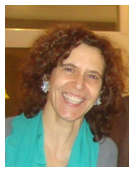 Paula Adam is responsible for Research Assessment at the Agency for Health Quality and Assessment of Catalonia (AQuAS). She has been leading the ISOR Group which carries on studies on the impact of health sciences research in Spain. One achievement of this group has been the accurate impact assessment of a public (non-commercial) call on clinical and health services research (from 1996 to 2004) with multiple ultimate purposes: accountability to donors, advocacy for future public investments in translational research, learning on how to accelerate impact and strategy for shaping future research calls. Another achievement of the ISOR group is the creation of the SIRECS registry database, which collects detailed information on research inputs and throughputs (e.g. clinical trails) for all Catalan biomedical research institutes and centres. One end goal of this registry, apart from accountability and analysis, is the use for implementing ‘pay-for-performance’ formulae in the mechanism for public funding of research in institutes and centres.
Paula Adam is responsible for Research Assessment at the Agency for Health Quality and Assessment of Catalonia (AQuAS). She has been leading the ISOR Group which carries on studies on the impact of health sciences research in Spain. One achievement of this group has been the accurate impact assessment of a public (non-commercial) call on clinical and health services research (from 1996 to 2004) with multiple ultimate purposes: accountability to donors, advocacy for future public investments in translational research, learning on how to accelerate impact and strategy for shaping future research calls. Another achievement of the ISOR group is the creation of the SIRECS registry database, which collects detailed information on research inputs and throughputs (e.g. clinical trails) for all Catalan biomedical research institutes and centres. One end goal of this registry, apart from accountability and analysis, is the use for implementing ‘pay-for-performance’ formulae in the mechanism for public funding of research in institutes and centres.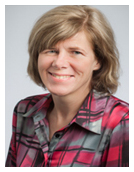 Kathryn Graham is the Director of the Performance Management and Evaluation Department at Alberta Innovates - Health Solutions (AIHS) which is a Canadian-based, publicly-funded, not-for-profit, provincial health research and innovation organization. She has over 20 years of strategic evaluation experience in health care and has worked with provincial and federal organizations in the areas of quality assurance, health research and innovation. Her expertise is in developing performance management and evaluation strategies and implementing these at system, program and network level. Implementation included the application of the Canadian Academy of Health Sciences (2009) research impact assessment framework.
Kathryn Graham is the Director of the Performance Management and Evaluation Department at Alberta Innovates - Health Solutions (AIHS) which is a Canadian-based, publicly-funded, not-for-profit, provincial health research and innovation organization. She has over 20 years of strategic evaluation experience in health care and has worked with provincial and federal organizations in the areas of quality assurance, health research and innovation. Her expertise is in developing performance management and evaluation strategies and implementing these at system, program and network level. Implementation included the application of the Canadian Academy of Health Sciences (2009) research impact assessment framework. Alexandra Pollitt is a Senior Analyst at RAND Europe, where her work focuses primarily on research evaluation. She recently finished work on an international, three-year project looking at the impacts of research in mental health and neuroscience, having previously contributed to a similar study on cardiovascular research. Alex holds an MA (First Class) in Experimental Psychology from Oxford University. Prior to joining RAND, she worked in impact assessment, monitoring and evaluation for an international NGO focusing on education and gender issues in sub-Saharan Africa. Alex also has experience in education assessment and previously worked in psychiatry research at the University of Cambridge.
Alexandra Pollitt is a Senior Analyst at RAND Europe, where her work focuses primarily on research evaluation. She recently finished work on an international, three-year project looking at the impacts of research in mental health and neuroscience, having previously contributed to a similar study on cardiovascular research. Alex holds an MA (First Class) in Experimental Psychology from Oxford University. Prior to joining RAND, she worked in impact assessment, monitoring and evaluation for an international NGO focusing on education and gender issues in sub-Saharan Africa. Alex also has experience in education assessment and previously worked in psychiatry research at the University of Cambridge.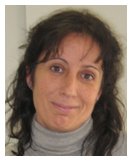 Maite Solans-Domènech is currently a research leader at the Agency for Health Quality and Assessment of Catalonia (AQuAS), where she participates in the monitoring, evaluation and assessment of the impact of biomedical research. She is currently working on the assessment of the impact of the about 100 million Euros that the citizens of Catalonia donated to the TV3 Telethon in the course of its first 20 editions. She is also leading the research characterisation and assessment of the scientific activities performed in the top-quality Health Research Institutes of Spain according to an accredited ranking.
Maite Solans-Domènech is currently a research leader at the Agency for Health Quality and Assessment of Catalonia (AQuAS), where she participates in the monitoring, evaluation and assessment of the impact of biomedical research. She is currently working on the assessment of the impact of the about 100 million Euros that the citizens of Catalonia donated to the TV3 Telethon in the course of its first 20 editions. She is also leading the research characterisation and assessment of the scientific activities performed in the top-quality Health Research Institutes of Spain according to an accredited ranking.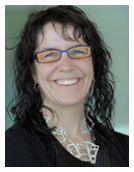 Marta Aymerich holds a PhD in Medicine and Surgery (2002; MD degree in 1993) from the Autonomous University of Barcelona, and a Master in Public Health (MPH) from the Harvard University (1999). She is currently the Vice President for Strategy and Planning at the Open University of Catalonia (UOC).
Marta Aymerich holds a PhD in Medicine and Surgery (2002; MD degree in 1993) from the Autonomous University of Barcelona, and a Master in Public Health (MPH) from the Harvard University (1999). She is currently the Vice President for Strategy and Planning at the Open University of Catalonia (UOC).  Doctor por la Universidad Complutense de Madrid. Actividad científica desarrollada en la University of Georgia (USA) y en el CSIC (del que es Científico Titular en el área de nutrición, ciencia y tecnología de alimentos). Carrera profesional centrada en la política científico-tecnológica nacional (responsable de la elaboración de varios planes y estrategias nacionales de I+D+ i y planes nacionales de eficiencia energética y energías renovables) e internacional , y en la dirección y gestión (Director General, Director General Adjunto, Subdirector General, Asesor de Ministro …) de entidades del ámbito de la investigación y la innovación (Ministerios de Economía, Industria, Energía, Ciencia, Tecnología, Innovación, Educación; CDTI; FECYT; IDAE ,ISCIII etc,).
Doctor por la Universidad Complutense de Madrid. Actividad científica desarrollada en la University of Georgia (USA) y en el CSIC (del que es Científico Titular en el área de nutrición, ciencia y tecnología de alimentos). Carrera profesional centrada en la política científico-tecnológica nacional (responsable de la elaboración de varios planes y estrategias nacionales de I+D+ i y planes nacionales de eficiencia energética y energías renovables) e internacional , y en la dirección y gestión (Director General, Director General Adjunto, Subdirector General, Asesor de Ministro …) de entidades del ámbito de la investigación y la innovación (Ministerios de Economía, Industria, Energía, Ciencia, Tecnología, Innovación, Educación; CDTI; FECYT; IDAE ,ISCIII etc,). 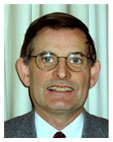 Martin Buxton is a Professor of Health Economics at Brunel University and has been actively involved in research on the economics of health and medical care, and on broader aspects of health service policy, for forty years. After working as an Economic Adviser at the Department of Health and Social Security in London, he has been based at Brunel University where, as Director until he stepped down at the beginning of 2010, he built up the Health Economics Research Group (HERG) into one of the leading University-based units for health economic evaluation research.
Martin Buxton is a Professor of Health Economics at Brunel University and has been actively involved in research on the economics of health and medical care, and on broader aspects of health service policy, for forty years. After working as an Economic Adviser at the Department of Health and Social Security in London, he has been based at Brunel University where, as Director until he stepped down at the beginning of 2010, he built up the Health Economics Research Group (HERG) into one of the leading University-based units for health economic evaluation research.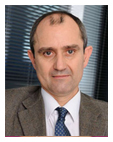 Gabriel Capellá obtained his MD degree by the University of Barcelona in 1983. He trained as a general and digestive surgeon at the Hospital de Sant Pau, Barcelona. His interest in translational cancer research lead him to a postdoctoral stay with Dr. Manuel Perucho the years 1989 and 1990. Back to Spain he spent 8 years at the Gastrointestinal Research Laboratory and since 1998 he works at the Institut Català d’Oncologia (ICO) where he was Director of the Translational Research Laboratory until 2011. Since 2010 he is serving as Director of the Hereditary Cancer Program. His main interest is the study of the genetic basis of gastrointestinal cancer and he is coauthor of more than 200 publications in international peer-reviewed journals. He has served as Scientific Director of ICO (2006-2010) and Scientific Director of Bellvitge Biomedical Research Institute (IDIBELL) (2008-2012). Since May 2013 is Head of Health Research and Innovation at the Ministry of Health of the Government of Catalonia.
Gabriel Capellá obtained his MD degree by the University of Barcelona in 1983. He trained as a general and digestive surgeon at the Hospital de Sant Pau, Barcelona. His interest in translational cancer research lead him to a postdoctoral stay with Dr. Manuel Perucho the years 1989 and 1990. Back to Spain he spent 8 years at the Gastrointestinal Research Laboratory and since 1998 he works at the Institut Català d’Oncologia (ICO) where he was Director of the Translational Research Laboratory until 2011. Since 2010 he is serving as Director of the Hereditary Cancer Program. His main interest is the study of the genetic basis of gastrointestinal cancer and he is coauthor of more than 200 publications in international peer-reviewed journals. He has served as Scientific Director of ICO (2006-2010) and Scientific Director of Bellvitge Biomedical Research Institute (IDIBELL) (2008-2012). Since May 2013 is Head of Health Research and Innovation at the Ministry of Health of the Government of Catalonia. Dr. Castellon has a degree in Medicine and Surgery and is specialized in Internal Medicine by the Universidad Complutense. He also holds a degree in Economics by the Universidad Autonoma and a "Master in Public Health" and a "Master in Health Policy and Management" by Harvard University.
Dr. Castellon has a degree in Medicine and Surgery and is specialized in Internal Medicine by the Universidad Complutense. He also holds a degree in Economics by the Universidad Autonoma and a "Master in Public Health" and a "Master in Health Policy and Management" by Harvard University.
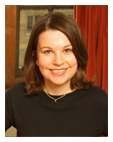 Dr. Claire Donovan (DPhil, MA, BA Hons, FRSA) has published widely on research evaluation and research policy. She joined HERG at Brunel University in 2010, and previously held research and teaching posts at The Australian National University, Oxford University, and The Open University. She has been a visiting fellow at Cambridge University, Harvard University, the London School of Economics, the University of Singapore, and the University of Sussex. Her recent research has included a Payback evaluation of the impact of research funded by Australia’s National Breast Cancer Foundation (with Teresa Jones and Stephen Hanney), and a report to the UK government on measuring cultural value (
Dr. Claire Donovan (DPhil, MA, BA Hons, FRSA) has published widely on research evaluation and research policy. She joined HERG at Brunel University in 2010, and previously held research and teaching posts at The Australian National University, Oxford University, and The Open University. She has been a visiting fellow at Cambridge University, Harvard University, the London School of Economics, the University of Singapore, and the University of Sussex. Her recent research has included a Payback evaluation of the impact of research funded by Australia’s National Breast Cancer Foundation (with Teresa Jones and Stephen Hanney), and a report to the UK government on measuring cultural value ( Dr. Cy Frank obtained degrees in zoology, education and medicine before becoming an Orthopaedic surgeon in 1980. He did a 3 year research Fellowship in San Diego and subspecialty training in knee surgery at the University of Toronto in 1983 before returning to Alberta to pursue a combined career in clinical care, research and education at University of Calgary. As of April 2013, he has published 255 peer reviewed articles, 40 book chapters, and 429 meeting abstracts. He was the inaugural Scientific Director of the Institute of Musculoskeletal Health and Arthritis of Canadian Institutes of Health Research from 2000-2006 and President of the Canadian Orthopaedic Association in 2009, and the Vice President Research Strategy for Alberta Health Services from 2010-2013.
Dr. Cy Frank obtained degrees in zoology, education and medicine before becoming an Orthopaedic surgeon in 1980. He did a 3 year research Fellowship in San Diego and subspecialty training in knee surgery at the University of Toronto in 1983 before returning to Alberta to pursue a combined career in clinical care, research and education at University of Calgary. As of April 2013, he has published 255 peer reviewed articles, 40 book chapters, and 429 meeting abstracts. He was the inaugural Scientific Director of the Institute of Musculoskeletal Health and Arthritis of Canadian Institutes of Health Research from 2000-2006 and President of the Canadian Orthopaedic Association in 2009, and the Vice President Research Strategy for Alberta Health Services from 2010-2013.  Gretchen Jordan is an independent consultant and retired Principal Member of the Technical Staff at Sandia National Laboratories, a U.S. Department of Energy (DOE) Laboratory, in the Science and Technology Strategic Management Unit. She has worked with both basic and applied research programs at Sandia and DOE headquarters since 1993.
Gretchen Jordan is an independent consultant and retired Principal Member of the Technical Staff at Sandia National Laboratories, a U.S. Department of Energy (DOE) Laboratory, in the Science and Technology Strategic Management Unit. She has worked with both basic and applied research programs at Sandia and DOE headquarters since 1993. 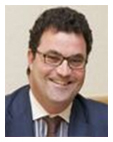 Position and responsibilities: Director of Consulting, Office of Health Economics. Jorge is responsible for all aspects of the business, including marketing, business development and project management. Jorge continues to conduct his own research leading to OHE and other publications and presentations, and will continue to contribute to all other OHE activities.
Position and responsibilities: Director of Consulting, Office of Health Economics. Jorge is responsible for all aspects of the business, including marketing, business development and project management. Jorge continues to conduct his own research leading to OHE and other publications and presentations, and will continue to contribute to all other OHE activities. 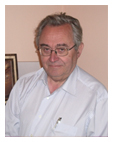 Gaietà Permanyer-Miralda was born in Barcelona (1942). To have been a practicing clinician from 1965 to 2007 defines his whole professional profile. Since 1972 cardiology was his field of expertise and, in parallel with clinical activity, he participated in research on diagnostic algorithms and outcomes in pericardial and valvular heart disease. During the eighties his interest in outcomes developed into studies of health related quality of life in heart disease. Later on (1994) this study line led to the development of an Outcomes Research Unit within the cardiology department at Hospital Vall d’Hebron in Barcelona, where nationwide studies on the determinants of the results of coronary artery surgery, percutaneous coronary intervention and transcatheter valve replacement, along with clinical outcomes in heart failure, have been developed to the present day. Simultaneously, the Unit has done methodological research on composite endpoints and bias in observational studies, some of it in cooperation with McMaster University in Ontario (Canada). In the last fifteen years, Dr. Permanyer-Miralda has cooperated with AQuAS (the Catalan HTA agency) and been increasingly interested in evaluative research. His interest in the social impact of biomedical research led him to cooperate with Dr. Paula Adam in the creation of the ISOR group in AQuAS (2008), where he is presently active.
Gaietà Permanyer-Miralda was born in Barcelona (1942). To have been a practicing clinician from 1965 to 2007 defines his whole professional profile. Since 1972 cardiology was his field of expertise and, in parallel with clinical activity, he participated in research on diagnostic algorithms and outcomes in pericardial and valvular heart disease. During the eighties his interest in outcomes developed into studies of health related quality of life in heart disease. Later on (1994) this study line led to the development of an Outcomes Research Unit within the cardiology department at Hospital Vall d’Hebron in Barcelona, where nationwide studies on the determinants of the results of coronary artery surgery, percutaneous coronary intervention and transcatheter valve replacement, along with clinical outcomes in heart failure, have been developed to the present day. Simultaneously, the Unit has done methodological research on composite endpoints and bias in observational studies, some of it in cooperation with McMaster University in Ontario (Canada). In the last fifteen years, Dr. Permanyer-Miralda has cooperated with AQuAS (the Catalan HTA agency) and been increasingly interested in evaluative research. His interest in the social impact of biomedical research led him to cooperate with Dr. Paula Adam in the creation of the ISOR group in AQuAS (2008), where he is presently active. Ross advises internationally on the communication of research for commercial, non profit and public policy purposes. He draws on 20+ years of experience running businesses that focused on data-led analysis in areas such as telecoms, publishing and finance. Ross brings an understanding of what it takes for the outputs of research to be understood and applied effectively to policy development and organisational decision-making. Above all, he is interested in what it takes to get people to act on information; not just in terms of responding to logical, rational arguments but also the wider psychology of human thinking and behaviour. Part of this is a specialisation in the conceptualisation and design of reports, presentations and data visualisations. He helps clients identify the key messages that the research and its data can support, advises on how to create the outputs, and finds the best mediums for hosting and communicating to different audiences.
Ross advises internationally on the communication of research for commercial, non profit and public policy purposes. He draws on 20+ years of experience running businesses that focused on data-led analysis in areas such as telecoms, publishing and finance. Ross brings an understanding of what it takes for the outputs of research to be understood and applied effectively to policy development and organisational decision-making. Above all, he is interested in what it takes to get people to act on information; not just in terms of responding to logical, rational arguments but also the wider psychology of human thinking and behaviour. Part of this is a specialisation in the conceptualisation and design of reports, presentations and data visualisations. He helps clients identify the key messages that the research and its data can support, advises on how to create the outputs, and finds the best mediums for hosting and communicating to different audiences. Octavi Quintana-Trias trained as a medical doctor in the University of Barcelona. He joined the Directorate-General for Research and Innovation of the European Commission in 2002, serving first as the Director of Health Research for five years and subsequently as the Director of Energy (EURATOM) in the same Directorate-General. He is currently Director of the European Research Area.
Octavi Quintana-Trias trained as a medical doctor in the University of Barcelona. He joined the Directorate-General for Research and Innovation of the European Commission in 2002, serving first as the Director of Health Research for five years and subsequently as the Director of Energy (EURATOM) in the same Directorate-General. He is currently Director of the European Research Area. Education: Drs in Political Science from the University of Amsterdam (1987), PhD in Quantitative Studies of Science & Technology from Leiden University (2004).
Education: Drs in Political Science from the University of Amsterdam (1987), PhD in Quantitative Studies of Science & Technology from Leiden University (2004). 


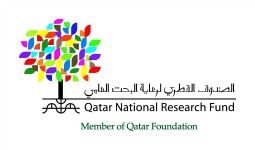

.png)